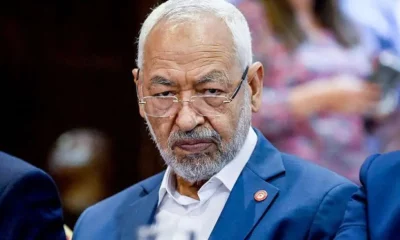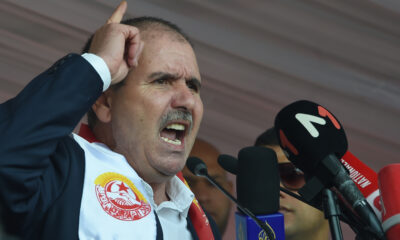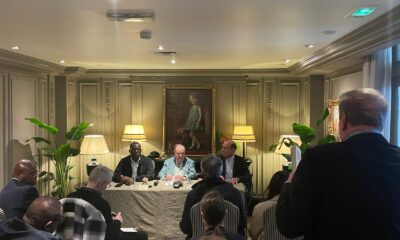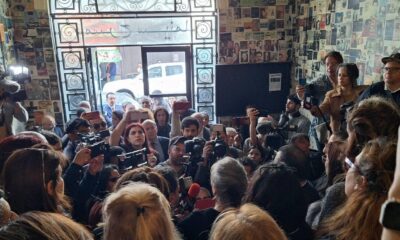Non classé
Africa… Could It Become the World’s Breadbasket?

- Share
- Tweet /home/clients/157e2baf4f2f57e338044fd02e442b8c/sites/jdd-tunisie.com/wp-content/plugins/mvp-social-buttons/mvp-social-buttons.php on line 71
https://jdd-tunisie.com/wp-content/uploads/2025/03/JDD_Tun-1000x600.jpeg&description=Africa… Could It Become the World’s Breadbasket?', 'pinterestShare', 'width=750,height=350'); return false;" title="Pin This Post">
At the heart of a stark contradiction, Africa, a continent rich in fertile land and natural resources, imports tens of billions of euros worth of food products annually. This reality, which seems like a historical paradox, is highlighted by businessman and philanthropist George Arthur Forrest in his book published on March 20, 2025, titled Africa Can Feed the World. Forrest offers a strategic and realistic analysis of this contradiction, calling for agriculture to become the foundation of African sovereignty in food, economic, and political domains.
A Message Directed at African Leaders and Their Partners
The book begins with a foreword by Macky Sall, former President of Senegal and former Chairperson of the African Union, addressing African decision-makers and their international partners, including France. The book points out that Africa’s reliance on food imports is the result of decades of unbalanced trade policies, unfair free trade agreements, and a lack of structural investment in local agriculture.
Amid current challenges, where global supply chains are under pressure and prices are affected by rising inflation, the issue of food sovereignty has become an urgent necessity, not only for Africa but also for Europe.
A Rich Continent… Yet Dependent on Others
Forrest reveals a striking reality: Africa holds 65% of the world’s untapped arable land, yet it imports over $35 billion worth of food annually. This food dependency comes at a high cost, hindering development, increasing economic vulnerabilities, and leaving nearly a quarter of Africa’s population in food insecurity.
Clear Obstacles
The book outlines the main causes of this situation, including:
Climate change, which disrupts agricultural balance.
Lack of modern infrastructure, leading to significant post-harvest losses.
Insufficient training, innovation, and technical support.
Political instability in some strategic agricultural regions.
GoCongo Project: A Replicable Model
Forrest dedicates a significant portion of his book to the GoCongo project, an agricultural initiative launched in the Democratic Republic of Congo. The project aims to provide food for up to 100 million Congolese while preserving natural resources. The book demonstrates that solutions exist, but they require large-scale support.
A Global Geopolitical Challenge
The book goes beyond the issue of agriculture to pose a larger political question: How can true sovereignty be achieved without food independence? At a time when France and Europe are questioning the resilience of their agricultural systems, the book calls for rethinking partnerships with Africa, focusing on enhancing local resources, improving access to water and electricity, and supporting agricultural innovation.
A Book That Opens Eyes
Africa Can Feed the World is both a precise diagnosis and a call to action. The book offers practical solutions, successful examples, and pathways for building sustainable food sovereignty. It is a message directed at African governments and their European partners alike.

-

 A la une3 أشهر ago
A la une3 أشهر agoالقضاء يأذن بالتحقيق في وفاة الطبيب زكرياء بوقرة
-

 A la une4 أشهر ago
A la une4 أشهر agoحتى لا يعود الأخوان !
-

 A la une3 أشهر ago
A la une3 أشهر agoتونس: أحكام بالسجن تصل إلى 66 عاماً في قضية “التآمر على أمن الدولة”
-

 A la une3 أشهر ago
A la une3 أشهر agoجبهة الخلاص الوطني تنظّم وقفة احتجاجية للمطالبة بإطلاق سراح المعتقلين السياسيين
-

 A la une3 أشهر ago
A la une3 أشهر agoالمعارضة الضعيفة لا تعني السلطة القوية: محاولة في فهم المشهد السياسي الراهن
-

 الأخبار4 أشهر ago
الأخبار4 أشهر agoأزمة الاتحاد العام التونسي للشغل والسلطة: صراع يؤجج الأزمات ويُعقّد المشهد السياسي
-

 A la une4 أشهر ago
A la une4 أشهر agoأفريقيا.. هل تصبح سلة غذاء العالم؟
-

 A la une3 أشهر ago
A la une3 أشهر agoالسلطات التونسية تمنع تظاهرة حول “المحاكمة العادلة” بدعوى الترخيص